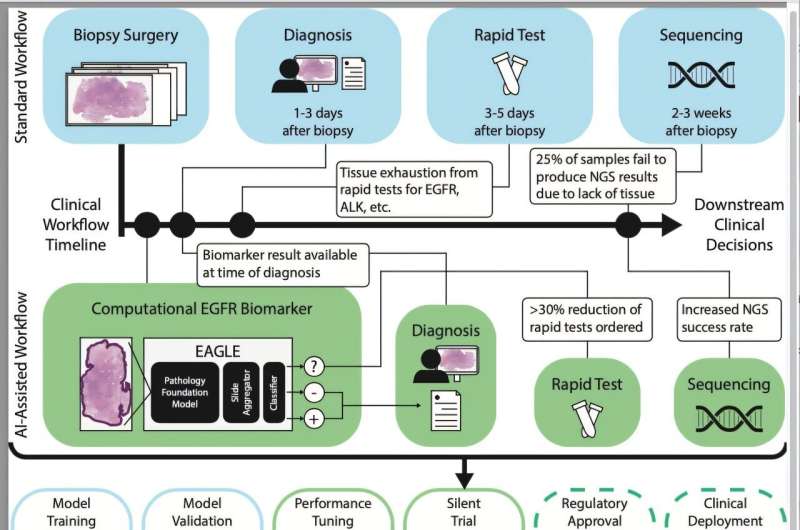The findings, published in Nature Medicine, showed that AI can accurately predict genetic mutations from routine pathology slides—potentially reducing the need for rapid genetic testing in certain cases.
The paper is titled “Enhancing Clinical Genomics in Lung Adenocarcinoma with Real-World Deployment of a Fine-Tuned Computational Pathology Foundation Model.”
“Our findings show that AI can extract critical genetic insights directly from routine pathology slides,” says study lead author Gabriele Campanella, Ph.D., Assistant Professor of the Windreich Department of Artificial Intelligence and Human Health at the Icahn School of Medicine at Mount Sinai.
“This could streamline clinical decision-making, conserve valuable resources, and accelerate patients’ access to targeted therapies by reducing reliance on certain rapid genetic tests.”

